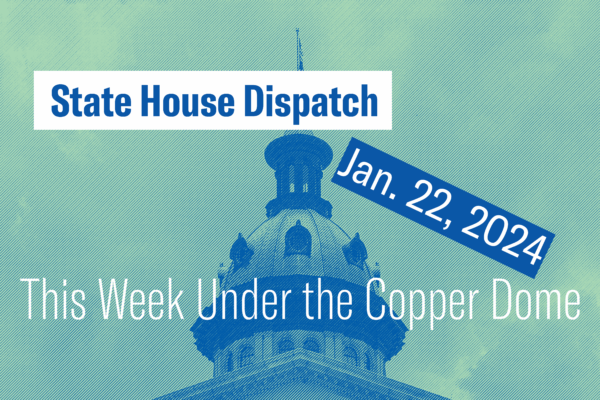It can be hard to stay focused on building a better world when our basic rights are under attack. At the ACLU of South Carolina, we have a positive agenda for the next four years — expanding voting rights, guaranteeing new rights for tenants, and radically reforming the juvenile justice system — but at the same time, we have to play defense against the worst impulses of our state’s leaders.
Last week Republicans in the South Carolina House of Representatives were dead set on stripping away healthcare from transgender youth, barring the use of public funds to provide medically necessary care to adults up to age 26, and pressuring public school employees to out trans kids to their families. Led along by an extremist nationwide dark money group called the State Freedom Caucus Network, they rejected amendments to lessen the harm of House Bill 4624 and passed it in an 82-23 vote.
We don’t know when or if the Senate Medical Affairs Committee will take up H. 4624 for debate. We’ll be there to fight if and when the day comes. In the meantime, here’s what to expect for the week of Jan. 22 – 26, 2024.
Voting rights up in the air
On Thursday morning, a House subcommittee will discuss a mixed bag of bills related to elections and voting rights. Some of the bills would expand voting rights, while others would empower election deniers to wreak havoc when their preferred candidate loses.
On the bright side, H. 4590 would extend the hours of operation of early voting centers for elections and runoffs, requiring them to stay open until 7 p.m. (currently the law requires them to stay open until 5 or 6 p.m. depending on the type of election). House Speaker Murrell Smith (R-Sumter) is a sponsor on this bill, so we like the odds of this one passing.
On the dark side, Rep. Rob Harris (R-Spartanburg) will introduce H. 4259, which would give party officials the power to demand a full hand-count of ballots from a county. Nonpartisan election-protection groups have rejected these sorts of bills, and the League of Women Voters of South Carolina describes the bill's provisions as "unnecessary and very burdensome."
H. 4259 would also allow private funding of election audits. If you want a glimpse of what a privately funded election audit might look like, look at what happened in Arizona in 2021. After Donald Trump falsely claimed the 2020 election had been stolen from him, conspiracy theorists and billionaire partisans funded a hand-count of more than 2 million ballots in Maricopa County by a company calling itself "Cyber Ninjas" with a predetermined goal of overturning the election. American Oversight has a good summary of how it all went down.
The LWV writes that another bill up for debate, H. 4260, "would end early voting and would add an unnecessary requirement for voters with disabilities, apparently with the intent of limiting access to disability accommodations."
The Constitutional Laws Subcommittee of the House Judiciary Committee will consider these bills and more on Thursday, January 25, at 9 a.m. in Room 516 of the Blatt Building (1105 Pendleton St., Columbia). The meeting agenda is available here (PDF download). The League of Women Voters has more details on their website. If you'd like to provide written testimony in advance on any of these bills, email [email protected].
A big idea to keep families in their homes
First, the problem: South Carolina is a hot spot for evictions, and the impact on families has been devastating. South Carolina public schools reported enrolling nearly 12,000 homeless youth in the 2020-21 school year.
Eviction and homelessness can have devastating effects on children's development and educational outcomes. So far the legislature has not prioritized fixing the crisis, but we have solutions. One important step our lawmakers can take this year is passing H. 3844, a bill guaranteeing a right to counsel for tenants facing eviction from their homes.
The idea is that, just like defendants in criminal cases, people should have the option of legal representation when they are facing the possibility of losing their homes. We estimate that 18,300 South Carolinians could likely avoid a major disruption to their lives each year if renters had the right to counsel when facing eviction.
To read more about this bill, including the economic benefits it would bring to our state, check out our campaign page for Eviction Right to Counsel. If you’d like to take action to help this bill get a hearing in the House Judiciary Committee, use this form to contact your state lawmaker. Tell them they can take credit for actually protecting children from harm.


